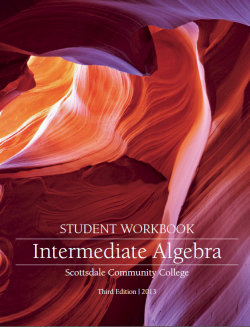Is Your Professor Using An Open Textbook This Semester? (Probably Not)

I am a user and advocate of free and openly licensed educational resources (OER), and open textbooks seems to me to be one of the lowest-hanging fruits on that OER tree.
I believe the use of OER materials in general has increased slightly the past few years, but the use of open textbooks has not increased. In fact, according to a large-scale survey recently released, only 6.6 percent of faculty members are "very aware" of them. That is not a good thing.
Back in 2010, I worked with the community college oerconsortium.org and the broader collegeopentextbooks.org
and gave many presentations on using open textbooks.
There are some colleges that have made a campus effort to encourage open textbook use, but they are in the minority.
Can you still require a textbook of your students. Yes. Maybe.
A recent survey report, "Opening the Textbook: Educational Resources in U.S. Higher Education, 2015-16," shows a mixed picture for OER and some "serious disconnects."
One of those was that 87% of professors who had recently chosen books or other materials for a coursone said the cost to the students had been important or very important to them, but only 5% percent of those had assigned a free or openly licensed textbook.
So why didn't they opt for open textbooks? Their perceived barriers include that there were not enough resources for their subject and that it was "too hard to find what I need" (no comprehensive catalog of resources).
I heard those when I did presentations. But there are plenty of sites that catalog books.
Looking at the textbook listings at collegeopentextbooks.org, I did a search for and found two very common gen ed course textbooks for statistics and economics.
 I was working at a community college when I first started working with open textbooks. Those schools are a great place for low-cost texts, especially because students are often taking courses below college level and need basic texts. Of course, students often enter 4-year colleges and also need to work on more basic math skills in order to do college-level math. Math is possibly the best subject for open textbooks because those books have a longer shelf life. Calculus does not change dramatically year to year.
I was working at a community college when I first started working with open textbooks. Those schools are a great place for low-cost texts, especially because students are often taking courses below college level and need basic texts. Of course, students often enter 4-year colleges and also need to work on more basic math skills in order to do college-level math. Math is possibly the best subject for open textbooks because those books have a longer shelf life. Calculus does not change dramatically year to year.
Let's take a look at a great example of an open textbook on Intermediate Algebra. Now in its third edition, it is one of four open textbooks that are core teaching resources at Scottsdale Community College. Along with Basic Arithmetic, Introductory Algebra and College Algebra, it has been used by thousands of students, saving their students upwards of $150,000 per semester.
This could be used in an algebra course or as a remedial reference for students in higher level courses. Of course, this is not only something that college professors should be examining. Teachers in high schools can also make good use of many of these textbooks with their students.
This particular group of books are the result of the SCC Math faculty making a collective decision to adopt OER and the books were developed and are maintained at virtually no cost by those faculty members. They have been enhanced by a suite of ancillary materials that include online help sessions, quizzes, and instructor's guides.
Intermediate Algebra consists of 12 lessons with a MiniLesson (topic coverage via video examples and You Try problems for students), Practice Problems, and an end-of-lesson Assessment.
Want to check it out or use it? You can view/download the textbook as a PDF and access all four books at sccmath.wordpress.com.
Basic Arithmetic (MAT082) – Workbook Edition 2
Introductory Algebra (MAT090, 091, 092) – Workbook Edition 4
Intermediate Algebra (MAT120, 121, 122) – Workbook Edition 4
College Algebra (MAT150, MAT151) – Workbook Edition 1
Trackbacks
Trackback specific URI for this entryThe author does not allow comments to this entry
Comments
No comments